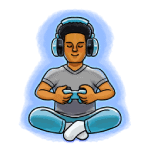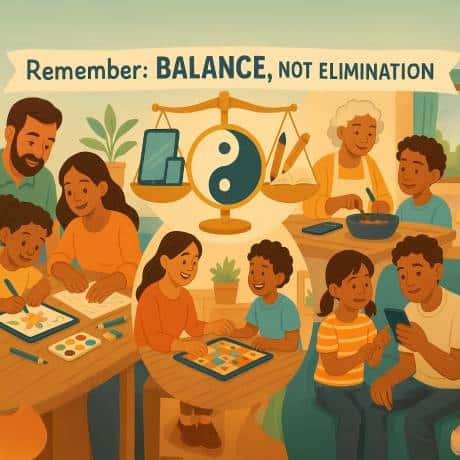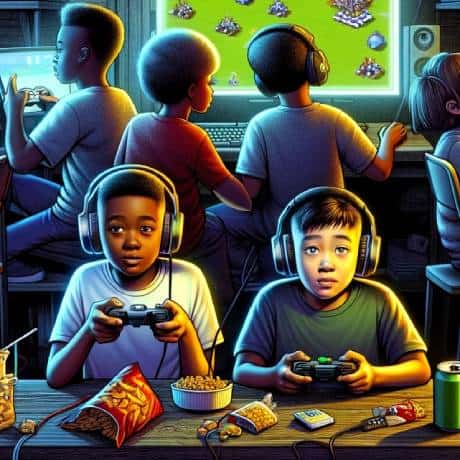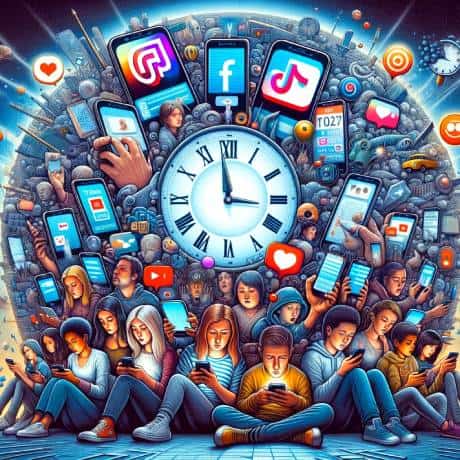How Your Thoughts Influence Your Health and Impact the Environment
Author:
 |
Lionel Thomas Father, Gamer and Founder with a Passion for Health, AI, Environment and Gamification of Life. |
Author Tool:
- ChatGPT (Content Enhancements & Research)
- GSpeech (Audio by AI)
- Other Tools (AI)...
Artists:
- Lionel Thomas using Leonardo.ai [AI Generated] (Header, Content)
References:
-
1. How Do Thoughts and Emotions Affect Health?
Taking Charge of your Health & Wellbeing
https://www.takingcharge.csh.umn.edu/how...
Summary:
Emotions, Health, and Well-being Summary
Emotions and Health Connection: Our emotions, both positive and negative, can have profound impacts on our health. When expressed freely without judgment, they don't harm our health, but repressed negative emotions can lead to various health issues.
Impact of Negative Emotions: Chronic stress from negative emotions can upset our body's hormone balance, damage our immune system, and even shorten our lifespan by affecting the telomeres in our DNA. Unmanaged anger can result in conditions like hypertension, cardiovascular disease, and more.
Benefits of Positive Emotions: Positive emotions, as researched by Dr. Barbara Fredrickson, can expand our world view, enhance emotional resilience, and offer several health benefits, including better sleep and faster recovery from stress.
Overcoming Negativity Bias: Humans have a natural tendency to focus on negative events due to evolutionary defense mechanisms. To maintain emotional harmony, Dr. Fredrickson suggests cultivating three positive emotions for every negative one.
The Power of Forgiveness: Actively forgiving and letting go of negative emotions linked to past events promotes mental, emotional, and physical health. The Stanford Forgiveness Project even demonstrated that forgiveness can be learned, with participants reporting reduced feelings of hurt, anger, and physical complaints.
Gratitude's Role: Acknowledging and giving thanks for the good in life greatly influences emotional well-being. Research, including findings by Brené Brown, suggests that it's gratitude that sparks joy, not the other way around.
Positive Emotions and Resilience: Embracing positive emotions can help build emotional resilience, allowing individuals to weather challenges without breaking down. Resilient individuals can confront pain and adversity while retaining a positive outlook, often seeing hardships as opportunities for growth.
-
2. The Role of Positive Emotions in Positive Psychology
National Library of Medicine
https://www.ncbi.nlm.nih.gov/pmc/article...
Summary:
Broaden-and-Build Theory in Layman's Terms
Imagine you're feeling really happy and content. According to this theory, when you're in that happy state, your mind opens up. You become more creative, more open to trying new things, and more interested in exploring. This "broadening" of your mind in the moment is like stretching out your mental muscles.
Now, over time, this isn't just a one-time benefit. Every time you stretch your mind like this, you're also "building" – gathering new skills, knowledge, relationships, and resources that will help you in the future. So, positive emotions like joy, interest, and love don't just make us feel good in the present; they also set us up for success in the future.
To put it simply: Positive emotions are like a workout for your brain. Just as physical exercise strengthens our body, these emotional 'workouts' strengthen our mind and overall well-being. The theory suggests that our ability to experience these positive emotions might be a core strength of being human, helping us to thrive and flourish. And the more we cultivate these positive emotions, the better off we'll be in the long run.
-
3. Insufficient sleep: Definition, epidemiology, and adverse outcomes
UpToDate
https://www.uptodate.com/contents/insuff...
Summary:
Chronic sleep insufficiency is prevalent in modern society due to factors such as work pressures, personal obligations, medical issues, and sleep disorders. Accumulated lack of sleep can lead to reduced productivity, higher risk of accidents, and negative impacts on mental and physical health. Sleep encompasses two aspects: duration (how long) and depth (how well). Inadequate sleep affects daytime alertness. While sleep might be deeper and longer when deprived, the intensity can change even without significant changes in duration, making duration alone an insufficient measure of sleep health.
-
4. Effect of Inadequate Sleep on Frequent Mental Distress
Centers for Disease Control and Prevention (CDC)
https://www.cdc.gov/pcd/issues/2021/20_0...
Summary:
Around 33% of US adults sleep less than the recommended duration, and nearly 20% have a mental illness. This study aimed to explore the connection between insufficient sleep and frequent mental distress among US adults.
-
5. What You Can Do to Reduce Pollution from Vehicles and Engines
United States Environmental Protection Agency (EPA)
https://www.epa.gov/transportation-air-p...
Summary:
Ways to Reduce Pollution from Vehicles and Engines:
Drive Less:
- Walk, bike, or use bike-share programs.
- Opt for public transit.
- Carpool or use ride-sharing services.
- Combine multiple errands into one trip.
- Consider working from home if feasible.
Drive Wise:
- Drive smoothly, avoiding rapid acceleration and braking.
- Regularly maintain your car: get tune-ups, follow the manufacturer’s maintenance schedule, and use the recommended motor oil.
Choose Fuel-Efficient Vehicles:
- When buying a new car, consider vehicles with low greenhouse gas emissions.
- Research using the EPA's Green Vehicle Guide and the Fuel Economy and Environment Label.
- Consider electric, plug-in hybrids, hydrogen fuel cell, or cleaner gasoline vehicles.
Don’t Idle:
- Avoid unnecessary idling as it pollutes the air, wastes fuel, and increases engine wear.
- Modern vehicles don't need "warming up" during winter.
- Advocate for reducing idling of diesel school buses.
Optimize Home Deliveries:
- Consolidate online orders into one shipment with minimal packaging.
- Choose broader delivery time windows to optimize delivery routes.
Use Efficient Lawn and Gardening Equipment:
- For small lawns, use manual mowers.
- Opt for electric or battery-powered gardening tools over gas-powered ones.
- Maintain your gardening equipment regularly.
- If buying commercial-grade equipment, choose those with advanced emissions reduction technologies.
-
6. Physical activity
World Health Organization
https://www.who.int/news-room/fact-sheet...
-
7. To grow up healthy, children need to sit less and play more
World Health Organization
https://www.who.int/news/item/24-04-2019...
-
8. WHO guidelines on physical activity and sedentary behaviour
World Health Organization
https://www.who.int/publications/i/item/...
-
9. Nature and mental health: An ecosystem service perspective
Science Advances
https://www.science.org/doi/10.1126/scia...
-
Associations between Nature Exposure and Health: A Review of the Evidence
National Library of Medicine
https://www.ncbi.nlm.nih.gov/pmc/article...
Summary:
Alright, let me break this down into a simpler explanation for you:
Nature and Health:
Researchers have looked into how being in nature affects our health. They've especially tried to focus on kids and teenagers when they could.
Main Findings:
Being in nature seems to be good for our thinking abilities, brain function, blood pressure, mental health, physical activity, and sleep. These benefits have been found in studies that specifically set up experiments and also in ones that just observed people over time.
Some Theories:
Why does nature help? There are a few ideas:
Biophilia Hypothesis: Humans might naturally have a love for nature because we evolved with it.
Attention Restoration Theory (ART): Modern life can be mentally tiring. Nature might help refresh our brains and attention.
Stress Reduction Theory (SRT): Nature might help reduce our stress because we feel a natural connection to it.
There are other ideas too, like nature giving us a place to socialize or exercise, or reducing bad things like pollution and noise.








 Snacks
Snacks Water
Water Eye Sight
Eye Sight Hearing
Hearing






















 As we become healthier, so will the Earth, for Example:
As we become healthier, so will the Earth, for Example:








